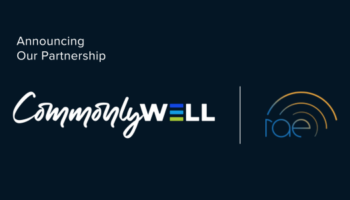Data Design
It’s all about good data
Good data enables you to reliably develop analytics which demonstrate the level of effectiveness in your programs and services. Without good data, your outcomes reporting lacks credibility.
“
At its core, intelligence can be viewed as a process that
converts unstructured information into useful and
actionable knowledge.
”
DEMIS HASSABIS
Our valid and reliable survey
and assessment tools
To collect quality data, we use the The Recovery Capital
Index® (RCI), which provides a comprehensive picture of a
person’s whole wellbeing using an online, automated survey.
The evidence-based RCI meets a set of standards expected
by clinicians and other care providers.
We worked with Sanford Research to validate the RCI.
Findings were peer-reviewed and published in May 2018.
Other standard assessments are also available to distribute
easily via our platform, including Patient Health Questionnaire
(PHQ), General Anxiety Disorder (GAD), Brief Addiction
Monitor (BAM), Brief Inventory of Thriving (BIT), Professional
Quality of Life Scale, Alcohol Moderation Assessment, and
Cantril Self-Anchoring Scale.
What we measure drives
what we can change
Addiction recovery is not a binary state of sober or not sober — let’s not measure it that way. Instead, the RCI measures all of the internal and external determinants that can affect recovery, from personal circumstances to social wellbeing and cultural values. The data captured from this comprehensive survey provides an unparalleled view of intervention effectiveness.
Pre, during, and post treatment
The recovery journey doesn’t begin and end in a clinical
setting, so the data shouldn’t either. The RCI is designed
to capture data and monitor progress throughout a
client’s pathway, from intake to discharge and beyond.
Lead with confidence
Good data gives you confidence to make the right decisions and changes for improving client outcomes and proving ROI. That’s why data design is the first step in our Recovery Intelligence Model. Everything depends on how, when, and where you capture data.
Experience firsthand how we
capture data
As an automated survey, the Recovery Capital Index® is available right this very minute, along with other helpful surveys and assessments. Try out the RCI for yourself, and experience the way your clients will report their progress back to you. Customization is always an option, so let’s chat about your organization’s needs.
Insights
Commonly Well announces the hiring and appointment of John Hulick, an experienced public sector expert and innovator
Commonly Well appoints former New Jersey state and Palm Beach County, Florida Drug Czar to lead its strategic initiatives POTSDAM, NY – June 27, 2025 – Commonly Well, a leader in resilience and recovery services and technology, today announced the appointment of John Hulick as Director, Strategic Partnerships and Government Affairs. In this executive leadership role,Continue reading “Commonly Well announces the hiring and appointment of John Hulick, an experienced public sector expert and innovator”
Read More →By David
6/30/25
RAE Health and Commonly Well to apply AI, Analytics, and Advanced Wearable Science to Improve Recovery and Well-Being
What happens when wearable technology integrates with recovery intelligence? RAE Health and Commonly Well are answering that question by paving the way for a new era in behavioral health analytics. Through real-time biometric tracking and tools that measure recovery capital, this partnership will offer a clearer understanding of individuals’ experiences and ensure care tailored toContinue reading “RAE Health and Commonly Well to apply AI, Analytics, and Advanced Wearable Science to Improve Recovery and Well-Being”
Read More →By David
12/5/24
Commonly Well Announces the Formation of an Advisory Panel to Responsibly Guide the Integration of AI into Recovery Management and Addiction Treatment Services
We are thrilled to announce the distinguished Advisory Panel that will play a crucial role in our product development. They’ll be overseeing the implementation of valuable artificial intelligence (AI) into our Recovery IntelligenceTM technology for addiction care, social care, and recovery support services.
Read More →By David
11/21/23


